Images of Zion: Biblical Antecedents for the New Jerusalem
Published: Apr 2010
£60.00
This study, unparalleled in recent scholarly writing, sets out to examine the broad sweep of the biblical theological tradition about Jerusalem/Zion as the antecedent to Revelation's depiction of the New Jerusalem.
In the Old Testament, Jerusalem/Zion is depicted in both its ideal form and its actual manifestation. In the Psalms (and seminally in the Pentateuch), Zion is depicted as similar to the holy mountains of the gods in Ugaritic religion. But it is not only a dwelling-place of the deity: it is also an earthly city inhabited by humans, and so it becomes a place of community of the divine and the human. The historical books of course make no secret of the realities of life in the far from holy Jerusalem, and, in the prophets also, the city of Jerusalem is the site of wrongdoing and corruption, a place attracting judgment; but equally it is the focus for eschatological anticipations of a renewed community that does fulfil the ideal.
In the New Testament, by its rejection of the Messiah earthly Jerusalem forfeits its role as the true Jerusalem/Zion, which is taken over by Jesus and the church. Occasionally we get glimpses of the belief that the true Jerusalem is in heaven (a development begun in Second Temple literature). The book of Revelation picks up as well from Second Temple literature the theme of the identity of Jerusalem with the Garden of Eden, combining this idea with renewal-of-Zion passages from the prophets to depict the final state of God's people as a place of blessedness, community, life and safety, as well of intimacy with God.
Images of Zion: Biblical Antecedents for the New Jerusalem
£60.00
This study, unparalleled in recent scholarly writing, sets out to examine the broad sweep of the biblical theological tradition about Jerusalem/Zion as the antecedent to Revelation's depiction of the New Jerusalem.
In the Old Testament, Jerusalem/Zion is depicted in both its ideal form and its actual manifestation. In the Psalms (and seminally in the Pentateuch), Zion is depicted as similar to the holy mountains of the gods in Ugaritic religion. But it is not only a dwelling-place of the deity: it is also an earthly city inhabited by humans, and so it becomes a place of community of the divine and the human. The historical books of course make no secret of the realities of life in the far from holy Jerusalem, and, in the prophets also, the city of Jerusalem is the site of wrongdoing and corruption, a place attracting judgment; but equally it is the focus for eschatological anticipations of a renewed community that does fulfil the ideal.
In the New Testament, by its rejection of the Messiah earthly Jerusalem forfeits its role as the true Jerusalem/Zion, which is taken over by Jesus and the church. Occasionally we get glimpses of the belief that the true Jerusalem is in heaven (a development begun in Second Temple literature). The book of Revelation picks up as well from Second Temple literature the theme of the identity of Jerusalem with the Garden of Eden, combining this idea with renewal-of-Zion passages from the prophets to depict the final state of God's people as a place of blessedness, community, life and safety, as well of intimacy with God.
Scottish Fiction as Gospel Exegesis: Four Case Studies
Published: Apr 2010
£45.00
The relationship between the Bible and literature continues to fascinate many scholars working in both fields. In this book, as the Gospels and the work of four Scottish writers are read together, their correspondences become manifest. The four writers, James Hogg, Robert Louis Stevenson, Mrs Oliphant and Lewis Grassic Gibbon, offer distinctive and accessible readings of the Gospels. Bringing the biblical texts and the work of these writers into conversation with one another highlights the changing ways the Bible influenced the fiction of the nineteenth and early twentieth centuries.
Alison Jack shows that these novels function as exegeses of Gospel texts and ideas. What is offered here is not a simple noting of biblical allusions, but a narrative exploration of Gospel themes, ideas and stories, such as the Parable of the Prodigal Son, as they are woven through the content and form of the novels discussed, among them Hogg's Confessions of a Justified Sinner and Stevenson's The Master of Ballantrae. This weaving is never untouched by the influence of Calvinism on the imagination of these Scottish writers; but the influence, informed by the polymorphism of gospel discourse, is often surprising and certainly not static.
This book offers an insight into a shifting literary world that will be of interest to biblical critics working on the reception history of the Gospels and to scholars of nineteenth- and twentieth-century Scottish literature, as well as to general readers who want to explore the hermeneutical issues raised by reading the Bible and literature together.
Scottish Fiction as Gospel Exegesis: Four Case Studies
£45.00
The relationship between the Bible and literature continues to fascinate many scholars working in both fields. In this book, as the Gospels and the work of four Scottish writers are read together, their correspondences become manifest. The four writers, James Hogg, Robert Louis Stevenson, Mrs Oliphant and Lewis Grassic Gibbon, offer distinctive and accessible readings of the Gospels. Bringing the biblical texts and the work of these writers into conversation with one another highlights the changing ways the Bible influenced the fiction of the nineteenth and early twentieth centuries.
Alison Jack shows that these novels function as exegeses of Gospel texts and ideas. What is offered here is not a simple noting of biblical allusions, but a narrative exploration of Gospel themes, ideas and stories, such as the Parable of the Prodigal Son, as they are woven through the content and form of the novels discussed, among them Hogg's Confessions of a Justified Sinner and Stevenson's The Master of Ballantrae. This weaving is never untouched by the influence of Calvinism on the imagination of these Scottish writers; but the influence, informed by the polymorphism of gospel discourse, is often surprising and certainly not static.
This book offers an insight into a shifting literary world that will be of interest to biblical critics working on the reception history of the Gospels and to scholars of nineteenth- and twentieth-century Scottish literature, as well as to general readers who want to explore the hermeneutical issues raised by reading the Bible and literature together.
Between the Text and the Canvas: The Bible and Art in Dialogue
Published: Dec 2009
£17.50 – £45.00
Can a painting or illustration of a biblical scene help readers understand the Bible? Conversely, to what extent can knowledge about a biblical story help viewers appreciate an artist's portrayal of it? Interpreting biblical art is more than a matter of asking whether or not an artist 'got it right' or 'got it wrong'. This lively collection of essays seeks to establish a dialogue between the Bible and art that sees the biblical text and artistic representations of it as equal conversation partners. By looking at texts and canvases from different angles, the ten contributors to the volume reveal how biblical interpretation can shed important light on art, how art can contribute significantly to biblical interpretation and how each has something distinctive to offer to the interpretative task.
Contributions include J. Cheryl Exum on Solomon de Bray's Jael, Deborah and Barak, Hugh S. Pyper on depictions of the relationship between David and Jonathan, Martin O'Kane on the biblical Elijah and his visual afterlives, Sally Norris on Chagall's depiction of Ezekiel's chariot vision, Christina Bucher on the Song of Songs and the enclosed garden motif in fifteenth-century paintings and engravings of Mary and the infant Jesus, Ela Nutu on differences in the way female and male artists have represented Judith, Christine E. Joynes on visualizations of Salome's dance, Heidi J. Hornik on Michele Tosini's Nativity,Way to Calvary and Crucifixion as visual narratives, Kelly J. Baker on Henry Ossawa Tanner's The Annunciation and Nicodemus, and Christopher Rowland on William Blake and the New Testament.
Between the Text and the Canvas: The Bible and Art in Dialogue
£17.50 – £45.00
Can a painting or illustration of a biblical scene help readers understand the Bible? Conversely, to what extent can knowledge about a biblical story help viewers appreciate an artist's portrayal of it? Interpreting biblical art is more than a matter of asking whether or not an artist 'got it right' or 'got it wrong'. This lively collection of essays seeks to establish a dialogue between the Bible and art that sees the biblical text and artistic representations of it as equal conversation partners. By looking at texts and canvases from different angles, the ten contributors to the volume reveal how biblical interpretation can shed important light on art, how art can contribute significantly to biblical interpretation and how each has something distinctive to offer to the interpretative task.
Contributions include J. Cheryl Exum on Solomon de Bray's Jael, Deborah and Barak, Hugh S. Pyper on depictions of the relationship between David and Jonathan, Martin O'Kane on the biblical Elijah and his visual afterlives, Sally Norris on Chagall's depiction of Ezekiel's chariot vision, Christina Bucher on the Song of Songs and the enclosed garden motif in fifteenth-century paintings and engravings of Mary and the infant Jesus, Ela Nutu on differences in the way female and male artists have represented Judith, Christine E. Joynes on visualizations of Salome's dance, Heidi J. Hornik on Michele Tosini's Nativity,Way to Calvary and Crucifixion as visual narratives, Kelly J. Baker on Henry Ossawa Tanner's The Annunciation and Nicodemus, and Christopher Rowland on William Blake and the New Testament.
From the Margins 2: Women of the New Testament and Their Afterlives
Published: Oct 2009
£60.00
Despite half a century of biblical interpretation that has sought to put women back on the agenda of ancient texts (written largely if not wholly by men), the dominant threads of narrative and doctrine have —with the notable exception of Mary the mother of Jesus —been focused on the lives and actions of men. Reception history tells a different story. It is not the case that there is a recovery of the lives of women hidden behind the pages of the New Testament, for our information remains as sparse and tantalizing as ever. Rather, the study of biblical women's 'afterlives' allows the imaginative engagement of artists and writers to broaden the horizon of interpretative expectations. Whether it is through historical imagination or the grasp of different portrayals of familiar biblical women (like Mary the mother of Jesus or Mary Magdalene), the creative genius of these interpreters, neglected by mainstream biblical textual scholars, only underlines the importance of the biblical women, viewed in the light of their afterlives.
This volume has its origins in a project entitled 'Biblical Women and their Afterlives' conceived and developed by the Centre for Reception History of the Bible at the University of Oxford and organized together with colleagues from the Luce Program in Scripture and Literary Arts at Boston University, USA. This project resulted not only in the present interdisciplinary collection of 21 essays (with their 66 illustrations) but also its companion volume From the Margins 1: Women of the Hebrew Bible and their Afterlives , edited by Peter S. Hawkins and Lesleigh Cushing Stahlberg.
The present volume includes the specially commissioned poem 'To Cast a Stone' by the acclaimed Irish poet John F. Deane.
From the Margins 2: Women of the New Testament and Their Afterlives
£60.00
Despite half a century of biblical interpretation that has sought to put women back on the agenda of ancient texts (written largely if not wholly by men), the dominant threads of narrative and doctrine have —with the notable exception of Mary the mother of Jesus —been focused on the lives and actions of men. Reception history tells a different story. It is not the case that there is a recovery of the lives of women hidden behind the pages of the New Testament, for our information remains as sparse and tantalizing as ever. Rather, the study of biblical women's 'afterlives' allows the imaginative engagement of artists and writers to broaden the horizon of interpretative expectations. Whether it is through historical imagination or the grasp of different portrayals of familiar biblical women (like Mary the mother of Jesus or Mary Magdalene), the creative genius of these interpreters, neglected by mainstream biblical textual scholars, only underlines the importance of the biblical women, viewed in the light of their afterlives.
This volume has its origins in a project entitled 'Biblical Women and their Afterlives' conceived and developed by the Centre for Reception History of the Bible at the University of Oxford and organized together with colleagues from the Luce Program in Scripture and Literary Arts at Boston University, USA. This project resulted not only in the present interdisciplinary collection of 21 essays (with their 66 illustrations) but also its companion volume From the Margins 1: Women of the Hebrew Bible and their Afterlives , edited by Peter S. Hawkins and Lesleigh Cushing Stahlberg.
The present volume includes the specially commissioned poem 'To Cast a Stone' by the acclaimed Irish poet John F. Deane.
Performing Memory in Biblical Narrative and Beyond
Published: Oct 2009
£60.00
Memory —'authentic', manufactured, imagined, innocent or deliberate —becomes remembrance through its performance, that is, through being narrated orally or in writing. And when it is narrated, memory becomes a shaper of identities and a social agent, a tool for shaping a community's present and future as much as, if not more so, than a near-simplistic recording of past history and a sense of belonging.
In this volume, various aspects of narrated 'memories' in the Bible and beyond it are examined for their literary and sociological charge within biblical literature as well as in its cultural afterlives —Jewish, Christian and 'secular'. From inner-biblical memory shaping claims to contemporaneous retellings, the shifts of tradition to story are explored for ways, means and aims that, authorially intentional or otherwise, become influential in adapting the Bible for the postmodern scene and adapting the postmodern scene to the Bible.
This compilation of articles is the result of a collective research project with participants from the University of Amsterdam and Utrecht University (The Netherlands), Tel Aviv University and Haifa University (Israel), Poznan University (Poland), Bowdoin College and Brite Divinity School (USA).
This is Volume 3 in the subseries Amsterdam Studies in the Bible and Religion.
Performing Memory in Biblical Narrative and Beyond
£60.00
Memory —'authentic', manufactured, imagined, innocent or deliberate —becomes remembrance through its performance, that is, through being narrated orally or in writing. And when it is narrated, memory becomes a shaper of identities and a social agent, a tool for shaping a community's present and future as much as, if not more so, than a near-simplistic recording of past history and a sense of belonging.
In this volume, various aspects of narrated 'memories' in the Bible and beyond it are examined for their literary and sociological charge within biblical literature as well as in its cultural afterlives —Jewish, Christian and 'secular'. From inner-biblical memory shaping claims to contemporaneous retellings, the shifts of tradition to story are explored for ways, means and aims that, authorially intentional or otherwise, become influential in adapting the Bible for the postmodern scene and adapting the postmodern scene to the Bible.
This compilation of articles is the result of a collective research project with participants from the University of Amsterdam and Utrecht University (The Netherlands), Tel Aviv University and Haifa University (Israel), Poznan University (Poland), Bowdoin College and Brite Divinity School (USA).
This is Volume 3 in the subseries Amsterdam Studies in the Bible and Religion.
Paul and Human Rights: A Dialogue with the Father of the Corinthian Community
Published: Oct 2009
£50.00
Unless biblical studies in any generation engages with the concrete issues and concerns of its day, it is likely to paint itself into an irrelevant scholarly corner. In a world shaped by the rhetoric and structures of 'human rights' (though struggling to accept and apply them) it is surprising that biblical scholars have largely failed to engage rights notions. Paul and Human Rights brings a biblical perspective to human rights by constructing a dialogue between them and the Paul of the Corinthian correspondence on key issues of power, equality and social structure.
The concept of human rights would have been alien to Paul, yet his Corinthian letters provide evidence of a sustained interaction with the kinds of issues we talk of in human rights terms. Long here explores Paul's emotive, manipulative language of mimesis, apostleship and fatherhood in conversation with human rights values. Similarly, Paul's social engineering and instructions regarding women and slaves are examined against the backdrop of human rights ideas about social structure and equality.
Unlike some other writers, Long's aim is neither to laud nor denigrate either Paul or human rights. His purpose is to build a dialogue where both can be heard and each can contribute to thinking about the other. In particular, the cruciform, other-orientation of Pauline servanthood provides a framework within which to consider how human rights ideas might continue to shape readings of Paul, and how Pauline perspectives might offer a critical alternative to the limited agenda of much contemporary human-rights thinking.
Paul and Human Rights: A Dialogue with the Father of the Corinthian Community
£50.00
Unless biblical studies in any generation engages with the concrete issues and concerns of its day, it is likely to paint itself into an irrelevant scholarly corner. In a world shaped by the rhetoric and structures of 'human rights' (though struggling to accept and apply them) it is surprising that biblical scholars have largely failed to engage rights notions. Paul and Human Rights brings a biblical perspective to human rights by constructing a dialogue between them and the Paul of the Corinthian correspondence on key issues of power, equality and social structure.
The concept of human rights would have been alien to Paul, yet his Corinthian letters provide evidence of a sustained interaction with the kinds of issues we talk of in human rights terms. Long here explores Paul's emotive, manipulative language of mimesis, apostleship and fatherhood in conversation with human rights values. Similarly, Paul's social engineering and instructions regarding women and slaves are examined against the backdrop of human rights ideas about social structure and equality.
Unlike some other writers, Long's aim is neither to laud nor denigrate either Paul or human rights. His purpose is to build a dialogue where both can be heard and each can contribute to thinking about the other. In particular, the cruciform, other-orientation of Pauline servanthood provides a framework within which to consider how human rights ideas might continue to shape readings of Paul, and how Pauline perspectives might offer a critical alternative to the limited agenda of much contemporary human-rights thinking.
Five Stones and a Sling: Memoirs of a Biblical Scholar
Published: Oct 2009
£14.95
Michael Goulder is a scholar who has always taken an original approach to the Bible and biblical criticism. He has developed five major theories, which challenged received opinion among the learned; and the book tells the story of how these 'stones' fared when confronting the biblical establishment. He wryly admits that his slinging has been rather less successful than David's against Goliath.
Among his five theories a special place must be given to his demonstration of how much of the teaching ascribed to Jesus actually derived from the evangelists —the Lord's Prayer for example being composed by Matthew out of Jesus' prayers in Gethsemane. The parables too are the composition of the evangelists, Matthew characteristically writing of kings and rich merchants, while Luke speaks of women, stewards, a beggar and a Samaritan. A long-rooted error Michael Goulder has valiantly opposed has been the belief that Matthew and Luke were both dependent on a lost source, Q; in fact, he argues, Luke was familiar with Matthew's Gospel and copied or developed its teaching as he thought best.
Goulder has worked at the Old Testament as well as the New. He concludes that the Psalms were not the individual prayers of pious Israelites, as Gunkel and others supposed, but the compositions of kings or their poets, deploring national disasters and praying for blessing at the great autumn festival.
This account of Goulder's scholarly work is fascinatingly interwoven with that of his life and ministry; and there are many anecdotes and vignettes of other people that are both amusing and interesting. He was ordained a priest in the Anglican Church, and though he resigned his Orders in 1981, he never lost his love of the Bible.
Five Stones and a Sling: Memoirs of a Biblical Scholar
£14.95
Michael Goulder is a scholar who has always taken an original approach to the Bible and biblical criticism. He has developed five major theories, which challenged received opinion among the learned; and the book tells the story of how these 'stones' fared when confronting the biblical establishment. He wryly admits that his slinging has been rather less successful than David's against Goliath.
Among his five theories a special place must be given to his demonstration of how much of the teaching ascribed to Jesus actually derived from the evangelists —the Lord's Prayer for example being composed by Matthew out of Jesus' prayers in Gethsemane. The parables too are the composition of the evangelists, Matthew characteristically writing of kings and rich merchants, while Luke speaks of women, stewards, a beggar and a Samaritan. A long-rooted error Michael Goulder has valiantly opposed has been the belief that Matthew and Luke were both dependent on a lost source, Q; in fact, he argues, Luke was familiar with Matthew's Gospel and copied or developed its teaching as he thought best.
Goulder has worked at the Old Testament as well as the New. He concludes that the Psalms were not the individual prayers of pious Israelites, as Gunkel and others supposed, but the compositions of kings or their poets, deploring national disasters and praying for blessing at the great autumn festival.
This account of Goulder's scholarly work is fascinatingly interwoven with that of his life and ministry; and there are many anecdotes and vignettes of other people that are both amusing and interesting. He was ordained a priest in the Anglican Church, and though he resigned his Orders in 1981, he never lost his love of the Bible.
Decolonizing God: The Bible in the Tides of Empire
Published: Oct 2009
£17.50 – £39.50
For centuries, the Bible has been used by colonial powers to undergird their imperial designs--an ironic situation when so much of the Bible was conceived by way of resistance to empires. In this thoughtful book, Mark Brett draws upon his experience of the colonial heritage in Australia to identify a remarkable range of areas where God needs to be decolonized--freed from the bonds of the colonial.
Writing in a context where landmark legal cases have ruled that Indigenous (Aboriginal) rights have been 'washed away by the tide of history', Brett re-examines land rights in the biblical traditions, Deuteronomy's genocidal imagination, and other key topics in both the Hebrew Bible and the New Testament where the effects of colonialism can be traced. Drawing out the implications for theology and ethics, this book provides a comprehensive new proposal for addressing the legacies of colonialism.
Decolonizing God: The Bible in the Tides of Empire
£17.50 – £39.50
For centuries, the Bible has been used by colonial powers to undergird their imperial designs--an ironic situation when so much of the Bible was conceived by way of resistance to empires. In this thoughtful book, Mark Brett draws upon his experience of the colonial heritage in Australia to identify a remarkable range of areas where God needs to be decolonized--freed from the bonds of the colonial.
Writing in a context where landmark legal cases have ruled that Indigenous (Aboriginal) rights have been 'washed away by the tide of history', Brett re-examines land rights in the biblical traditions, Deuteronomy's genocidal imagination, and other key topics in both the Hebrew Bible and the New Testament where the effects of colonialism can be traced. Drawing out the implications for theology and ethics, this book provides a comprehensive new proposal for addressing the legacies of colonialism.
The Linguist as Pedagogue: Trends in the Teaching and Linguistic Analysis of the Greek New Testament
Published: Oct 2009
£50.00
This volume of important essays from recent Society of Biblical Literature annual meetings covers two related and vital topics-linguistic pedagogy and linguistic analysis. The essays on pedagogy discuss current trends and perspectives on how to approach the teaching of a dead language in the vibrancy of the electronic age. Experienced teacher-scholars give insights into how they draw upon linguistic theory and marshal technology to help reinforce pedagogical technique.
A second set of essays is concerned with the linguistic issue of 'prominence', asking, How are texts able to show that certain portions are more important than others? The essays, both theoretical and practical, grapple with the linguistic equivalent of underlining, to show how prominence helps authors make their point. The book of Hebrews, where identifying major themes and ideas have proved problematic, is offered as an extended example.
The volume is rounded off with a collection of papers applying the insights of modern linguistics, and particularly sociolinguistics and discourse analysis, to reading the New Testament in new and provocative ways that transcend traditional exegesis.
The Linguist as Pedagogue: Trends in the Teaching and Linguistic Analysis of the Greek New Testament
£50.00
This volume of important essays from recent Society of Biblical Literature annual meetings covers two related and vital topics-linguistic pedagogy and linguistic analysis. The essays on pedagogy discuss current trends and perspectives on how to approach the teaching of a dead language in the vibrancy of the electronic age. Experienced teacher-scholars give insights into how they draw upon linguistic theory and marshal technology to help reinforce pedagogical technique.
A second set of essays is concerned with the linguistic issue of 'prominence', asking, How are texts able to show that certain portions are more important than others? The essays, both theoretical and practical, grapple with the linguistic equivalent of underlining, to show how prominence helps authors make their point. The book of Hebrews, where identifying major themes and ideas have proved problematic, is offered as an extended example.
The volume is rounded off with a collection of papers applying the insights of modern linguistics, and particularly sociolinguistics and discourse analysis, to reading the New Testament in new and provocative ways that transcend traditional exegesis.
Postcolonial Interventions: Essays in Honor of R.S. Sugirtharajah
Published: Aug 2009
£60.00
This collection of essays, with contributions by many long-term colleagues and collaborators of R. S. Sugirtharajah, Professor of Biblical Hermeneutics in the University of Birmingham, is meant to review, evaluate, celebrate, and honour his many scholarly contributions. The title of the collection signifies that the volume focusses not only on how we read socio-political interventions, but also on how reading can itself be a form of intervention. This focus on reading and intervention is in many ways most fitting, as Professor Sugirtharajah's biblical and theological hermeneutics have indeed been a significant force of intervention. His work has confronted and challenged many to see beyond a parochial mainstream, to perceive imperial and colonial dynamics in the Bible and in biblical studies, and to remain open to the transformative possibilities of reading from new sites as well as with new sights.
Postcolonial Interventions: Essays in Honor of R.S. Sugirtharajah
£60.00
This collection of essays, with contributions by many long-term colleagues and collaborators of R. S. Sugirtharajah, Professor of Biblical Hermeneutics in the University of Birmingham, is meant to review, evaluate, celebrate, and honour his many scholarly contributions. The title of the collection signifies that the volume focusses not only on how we read socio-political interventions, but also on how reading can itself be a form of intervention. This focus on reading and intervention is in many ways most fitting, as Professor Sugirtharajah's biblical and theological hermeneutics have indeed been a significant force of intervention. His work has confronted and challenged many to see beyond a parochial mainstream, to perceive imperial and colonial dynamics in the Bible and in biblical studies, and to remain open to the transformative possibilities of reading from new sites as well as with new sights.
On Earth as it is in Heaven: Temple Symbolism in the New Testament
Published: Jun 2009
£12.50
As more and more is being discovered about the beginnings of Christianity, a whole new understanding of the context of Christian origins is emerging. Any serious student now needs a knowledge of the traditions of the temple. This book, a supplement to Margaret Barker's The Gate of Heaven: The History and Symbolism of the Temple in Jerusalem, breaks further new ground, showing how the symbols and rituals of the temple shaped the lives of the early Christians, and illustrates the striking relevance of temple theology to the New Testament.
The influence of the temple cult has to be reconstructed by drawing on the increasing number of non-biblical texts now available. These include those written in the early churches; fragments from among the Dead Sea Scrolls; and Jewish texts written in the early Christian period. Piece by piece the world of the temple is emerging from this material. Through this close study of the Pseudepigrapha and other non-canonical writings, Margaret Barker examines four symbols of temple theology: Light, Life, Blood, and the Robes of Glory. She shows how details missing from the Old Testament descriptions can be recovered from other ancient texts to throw new light upon many significant passages of the Bible.
This is a reprint of the volume published by T. & T. Clark in 1995.
On Earth as it is in Heaven: Temple Symbolism in the New Testament
£12.50
As more and more is being discovered about the beginnings of Christianity, a whole new understanding of the context of Christian origins is emerging. Any serious student now needs a knowledge of the traditions of the temple. This book, a supplement to Margaret Barker's The Gate of Heaven: The History and Symbolism of the Temple in Jerusalem, breaks further new ground, showing how the symbols and rituals of the temple shaped the lives of the early Christians, and illustrates the striking relevance of temple theology to the New Testament.
The influence of the temple cult has to be reconstructed by drawing on the increasing number of non-biblical texts now available. These include those written in the early churches; fragments from among the Dead Sea Scrolls; and Jewish texts written in the early Christian period. Piece by piece the world of the temple is emerging from this material. Through this close study of the Pseudepigrapha and other non-canonical writings, Margaret Barker examines four symbols of temple theology: Light, Life, Blood, and the Robes of Glory. She shows how details missing from the Old Testament descriptions can be recovered from other ancient texts to throw new light upon many significant passages of the Bible.
This is a reprint of the volume published by T. & T. Clark in 1995.
Jesus’ Twofold Teaching about the Kingdom of God
Published: May 2009
£50.00
Recent research on Jesus' teaching about the Kingdom of God has in common the assumption that it remains the same throughout the time of his proclamation of it. The data that cannot be harmonized are usually judged to be inauthentic, originating from Christian prophets in the early church.
Smith shows in closely argued detail how essential it is to differentiate two historical contexts for Jesus' teaching about the Kingdom of God. The nature of the Kingdom of God is conditional upon its acceptance and the acceptance of its messenger —which is to say, Jesus' teaching about the Kingdom of God is hypothetical. This is the non-rejection context of Jesus' teaching about the Kingdom of God.
But some of Jesus' teaching about the Kingdom of God presupposes a context of the rejection of his message by the majority of Jews and especially the Jewish authorities. In this new context, Jesus teaches that the Kingdom will still come but not in the way first delineated, in the non-rejection context. This can be called the rejection context of Jesus' teaching about the Kingdom of God.
No attempt should be made to assimilate all the data into one historical context. Distinguishing two contexts for Jesus' teaching about the Kingdom of God allows us to appreciate how Jesus modifies his teaching in the light of the rejection of the Kingdom. Without this differentiation of two historical contexts, it is impossible to make sense of Jesus' teaching about the Kingdom of God.
Jesus’ Twofold Teaching about the Kingdom of God
£50.00
Recent research on Jesus' teaching about the Kingdom of God has in common the assumption that it remains the same throughout the time of his proclamation of it. The data that cannot be harmonized are usually judged to be inauthentic, originating from Christian prophets in the early church.
Smith shows in closely argued detail how essential it is to differentiate two historical contexts for Jesus' teaching about the Kingdom of God. The nature of the Kingdom of God is conditional upon its acceptance and the acceptance of its messenger —which is to say, Jesus' teaching about the Kingdom of God is hypothetical. This is the non-rejection context of Jesus' teaching about the Kingdom of God.
But some of Jesus' teaching about the Kingdom of God presupposes a context of the rejection of his message by the majority of Jews and especially the Jewish authorities. In this new context, Jesus teaches that the Kingdom will still come but not in the way first delineated, in the non-rejection context. This can be called the rejection context of Jesus' teaching about the Kingdom of God.
No attempt should be made to assimilate all the data into one historical context. Distinguishing two contexts for Jesus' teaching about the Kingdom of God allows us to appreciate how Jesus modifies his teaching in the light of the rejection of the Kingdom. Without this differentiation of two historical contexts, it is impossible to make sense of Jesus' teaching about the Kingdom of God.
From the Margins 1: Women of the Hebrew Bible and Their Afterlives
Published: Apr 2009
£40.00
Biblical women who are given only a few lines in the Bible, who are named only as the wife or sister or child of a man, can nonetheless play pivotal roles and cast long shadows. This volume brings together scholars, writers and art historians, who probe texts and trace reception history in exegesis, midrash, literature and the visual arts as they breathe life again into these biblical characters.
A companion volume is entitled From the Margins 2: Women of the New Testament and their Afterlives.
From the Margins 1: Women of the Hebrew Bible and Their Afterlives
£40.00
Biblical women who are given only a few lines in the Bible, who are named only as the wife or sister or child of a man, can nonetheless play pivotal roles and cast long shadows. This volume brings together scholars, writers and art historians, who probe texts and trace reception history in exegesis, midrash, literature and the visual arts as they breathe life again into these biblical characters.
A companion volume is entitled From the Margins 2: Women of the New Testament and their Afterlives.
Mark, Second Edition
Published: Apr 2009
£15.00 – £35.00
In this commentary, Broadhead explores the Gospel of Mark for literary designs that might guide modern readers. He gives special attention to structure, strategy, significance and the appropriation of meaning, and his analysis shows the Gospel as a sequential account which employs a strategy of reciprocity among its episodes. Clear signs are created within this Gospel, the meaning of which is negotiated by the first readers in the aftermath of the Temple's fall. Modern readers are encouraged to connect these signs to their own world and to initiate a new performance of this Gospel.
This Second Edition is a reprint, with altered pagination, of the volume first published in 1991 by Sheffield Academic Press.
Mark, Second Edition
£15.00 – £35.00
In this commentary, Broadhead explores the Gospel of Mark for literary designs that might guide modern readers. He gives special attention to structure, strategy, significance and the appropriation of meaning, and his analysis shows the Gospel as a sequential account which employs a strategy of reciprocity among its episodes. Clear signs are created within this Gospel, the meaning of which is negotiated by the first readers in the aftermath of the Temple's fall. Modern readers are encouraged to connect these signs to their own world and to initiate a new performance of this Gospel.
This Second Edition is a reprint, with altered pagination, of the volume first published in 1991 by Sheffield Academic Press.
The Way the World Ends? the Apocalypse of John in Culture and Ideology
Published: Mar 2009
£60.00
The richly varied collection of 15 essays in this volume showcase the afterlife of the Book of Revelation. It is a biblical book that has left its mark in many fields of intellectual endeavour: literature, film, music, philosophy, political theology, and religious ideology. It is perhaps paradoxical that this book, which promises God's punishment upon anyone expanding on its contents, has nevertheless accumulated to itself over two millennia vast amounts of commentary, exposition, and appropriation.
Offered at the close of the 'Blair/Bush years', this volume also exposes and highlights the often deeply ironic resonances generated while studying the reception history of Revelation during a period when the book has both significant public currency and a potentially terrifying global impact.
The Way the World Ends? the Apocalypse of John in Culture and Ideology
£60.00
The richly varied collection of 15 essays in this volume showcase the afterlife of the Book of Revelation. It is a biblical book that has left its mark in many fields of intellectual endeavour: literature, film, music, philosophy, political theology, and religious ideology. It is perhaps paradoxical that this book, which promises God's punishment upon anyone expanding on its contents, has nevertheless accumulated to itself over two millennia vast amounts of commentary, exposition, and appropriation.
Offered at the close of the 'Blair/Bush years', this volume also exposes and highlights the often deeply ironic resonances generated while studying the reception history of Revelation during a period when the book has both significant public currency and a potentially terrifying global impact.
With Eyes of Flesh: The Bible, Gender and Human Rights
Published: Aug 2008
£19.50 – £50.00
Carole Fontaine, well known among biblical scholars for her feminist studies in the biblical wisdom traditions and the ancient Near East, is also a human rights and interfaith activist working on issues of violence against Muslim women in the Middle East and Southern Asia and a board member of many agencies such as the International Network for the Rights of Female Victims of Violence in Pakistan, and the Women's Forum against Fundamentalism in Iran.
In this collection of her essays, mostly previously unpublished, she brings together these two concerns, distilling from the scriptures of Judaism, Christianity and Islam valuable insights into current questions of human rights. Unlike many writers, Fontaine recognizes the critical role of gender in the fundamental concept of the 'Other', so determinative for our view of humanity.
In our days, Fontaine argues, human rights issues have taken on a new dimension in political discourse about war, peace and terror, where often an appeal is made to religious and scriptural justifications for the violation or preservation of rights. Fontaine urges attention to the priority of the sufferer in adjudicating meaning, and turns to the 'little texts' of daily ethics rather than grand theological abstractions in order to place 'scriptures' in meaningful conversation with the concrete realities of our world.
This is the second volume of the Amsterdam Studies in the Bible and Religion (ed. Athalya Brenner), a sub-series of the Bible in the Moden World.
With Eyes of Flesh: The Bible, Gender and Human Rights
£19.50 – £50.00
Carole Fontaine, well known among biblical scholars for her feminist studies in the biblical wisdom traditions and the ancient Near East, is also a human rights and interfaith activist working on issues of violence against Muslim women in the Middle East and Southern Asia and a board member of many agencies such as the International Network for the Rights of Female Victims of Violence in Pakistan, and the Women's Forum against Fundamentalism in Iran.
In this collection of her essays, mostly previously unpublished, she brings together these two concerns, distilling from the scriptures of Judaism, Christianity and Islam valuable insights into current questions of human rights. Unlike many writers, Fontaine recognizes the critical role of gender in the fundamental concept of the 'Other', so determinative for our view of humanity.
In our days, Fontaine argues, human rights issues have taken on a new dimension in political discourse about war, peace and terror, where often an appeal is made to religious and scriptural justifications for the violation or preservation of rights. Fontaine urges attention to the priority of the sufferer in adjudicating meaning, and turns to the 'little texts' of daily ethics rather than grand theological abstractions in order to place 'scriptures' in meaningful conversation with the concrete realities of our world.
This is the second volume of the Amsterdam Studies in the Bible and Religion (ed. Athalya Brenner), a sub-series of the Bible in the Moden World.
Recent Releases: The Bible in Contemporary Cinema
Published: Aug 2008
£35.00
The relationship between theology and film has always been a complicated one. When film was invented at the end of the nineteenth century, it quickly gained its place in popular culture, far from the orthodoxies of the scholarly world and of the Church. For the better part of the twentieth century popular cinema was considered off limits for serious studies of Bible and culture. Recently, however, there has been a growing understanding of how the Bible is being used in popular culture —not as a historical document or as an authoritative canon, but as part of the cultural intertext.
Cinema is a vivid example of the role and impact of the Bible in contemporary society. In this well-theorized collection of essays the issue is treated from several angles. Using the methodology of theology, the question of the alleged escapism of popular cinema is explored. Using the methodology of media studies, the impact of the media on religious communication is analysed. And, using the methodology of religious studies, the influence of the cinema in the creation of new religions, religious behaviour and religious institutions is investigated.
In addition, the book offers fruitful analyses of the cinematic use of biblical themes such as Eden, salvation, Mary Magdalene and Jesus —as well as of the cinematic application of ethical themes such as truth-telling, personal growth, suffering, the accomplishment of good and the creating of meaning for human beings.
Recent Releases: The Bible in Contemporary Cinema
£35.00
The relationship between theology and film has always been a complicated one. When film was invented at the end of the nineteenth century, it quickly gained its place in popular culture, far from the orthodoxies of the scholarly world and of the Church. For the better part of the twentieth century popular cinema was considered off limits for serious studies of Bible and culture. Recently, however, there has been a growing understanding of how the Bible is being used in popular culture —not as a historical document or as an authoritative canon, but as part of the cultural intertext.
Cinema is a vivid example of the role and impact of the Bible in contemporary society. In this well-theorized collection of essays the issue is treated from several angles. Using the methodology of theology, the question of the alleged escapism of popular cinema is explored. Using the methodology of media studies, the impact of the media on religious communication is analysed. And, using the methodology of religious studies, the influence of the cinema in the creation of new religions, religious behaviour and religious institutions is investigated.
In addition, the book offers fruitful analyses of the cinematic use of biblical themes such as Eden, salvation, Mary Magdalene and Jesus —as well as of the cinematic application of ethical themes such as truth-telling, personal growth, suffering, the accomplishment of good and the creating of meaning for human beings.
Recent Research on Paul and Slavery
Published: Aug 2008
£45.00
New Testament scholarship and Paul have had a complicated relationship over the question of slavery. For many decades there has been a struggle to reconcile the abolitionist cause with a biblical text that seemingly supports the institution of slavery. Then the more recent discovery of inscriptions and documents referring to slaves in antiquity has added new dimensions to the debate. Furthermore, new interpretative approaches to the New Testament, including social-scientific criticism, rhetorical criticism and postcolonial criticism, have challenged earlier interpretations of Paul's statements about slavery. The issue has even more recently taken on a new shape as descendants of former North American slaves have engaged with the way Paul has been interpreted and used to justify the enslavement of their ancestors.
In this volume, John Byron provides a survey of 200 years of scholarly interpretation of Paul and slavery with a focus on the last 35 years. After a general overview of the history of research, Byron focusses in turn on four specific areas: African-American responses to Paul, Paul's slavery metaphors, the elliptical phrase in 1 Corinthians 7.21, and the letter to Philemon. An epilogue highlights four areas in which scholarship is continuing to change its understanding of ancient slavery and, in consequence, its interpretation of Paul. New Testament students and scholars will find the volume an valuable specialist resource that collects and analyses the most important developments on Paul and slavery.
Recent Research on Paul and Slavery
£45.00
New Testament scholarship and Paul have had a complicated relationship over the question of slavery. For many decades there has been a struggle to reconcile the abolitionist cause with a biblical text that seemingly supports the institution of slavery. Then the more recent discovery of inscriptions and documents referring to slaves in antiquity has added new dimensions to the debate. Furthermore, new interpretative approaches to the New Testament, including social-scientific criticism, rhetorical criticism and postcolonial criticism, have challenged earlier interpretations of Paul's statements about slavery. The issue has even more recently taken on a new shape as descendants of former North American slaves have engaged with the way Paul has been interpreted and used to justify the enslavement of their ancestors.
In this volume, John Byron provides a survey of 200 years of scholarly interpretation of Paul and slavery with a focus on the last 35 years. After a general overview of the history of research, Byron focusses in turn on four specific areas: African-American responses to Paul, Paul's slavery metaphors, the elliptical phrase in 1 Corinthians 7.21, and the letter to Philemon. An epilogue highlights four areas in which scholarship is continuing to change its understanding of ancient slavery and, in consequence, its interpretation of Paul. New Testament students and scholars will find the volume an valuable specialist resource that collects and analyses the most important developments on Paul and slavery.
Marxist Feminist Criticism of the Bible
Published: Jun 2008
£40.00
This volume seeks to spur a lively discussion on Marxist feminist analysis of biblical texts. Marxism and feminism have many mutual concerns, and the combination of the two has become common in literary criticism, cultural studies, sociology and philosophy. So it is high time for biblical studies to become interested.
This collection is the first of its kind in biblical studies, bringing together a mixture of newer and more mature voices. It falls into three sections: general concerns (Milena Kirova, Tamara Prosic and David Jobling); Hebrew Bible (Gale Yee and Avaren Ipsen); New Testament (Alan Cadwallader, Jorunn Økland, Roland Boer and Jennifer Bird).
Thought-provoking and daring, the collection includes: the history of Marxist feminist analysis, the work of Bertolt Brecht, the voices of prostitute collectives, and the possibilities for biblical criticism of the work of Rosemary Hennessy, Simone de Beauvoir, Juliet Mitchell, Wilhelm Reich and Julia Kristeva. All of which are brought to bear on biblical texts such as Proverbs, 1 Kings, Mark, Paul's Letters, and 1 Peter.
Marxist Feminist Criticism of the Bible
£40.00
This volume seeks to spur a lively discussion on Marxist feminist analysis of biblical texts. Marxism and feminism have many mutual concerns, and the combination of the two has become common in literary criticism, cultural studies, sociology and philosophy. So it is high time for biblical studies to become interested.
This collection is the first of its kind in biblical studies, bringing together a mixture of newer and more mature voices. It falls into three sections: general concerns (Milena Kirova, Tamara Prosic and David Jobling); Hebrew Bible (Gale Yee and Avaren Ipsen); New Testament (Alan Cadwallader, Jorunn Økland, Roland Boer and Jennifer Bird).
Thought-provoking and daring, the collection includes: the history of Marxist feminist analysis, the work of Bertolt Brecht, the voices of prostitute collectives, and the possibilities for biblical criticism of the work of Rosemary Hennessy, Simone de Beauvoir, Juliet Mitchell, Wilhelm Reich and Julia Kristeva. All of which are brought to bear on biblical texts such as Proverbs, 1 Kings, Mark, Paul's Letters, and 1 Peter.

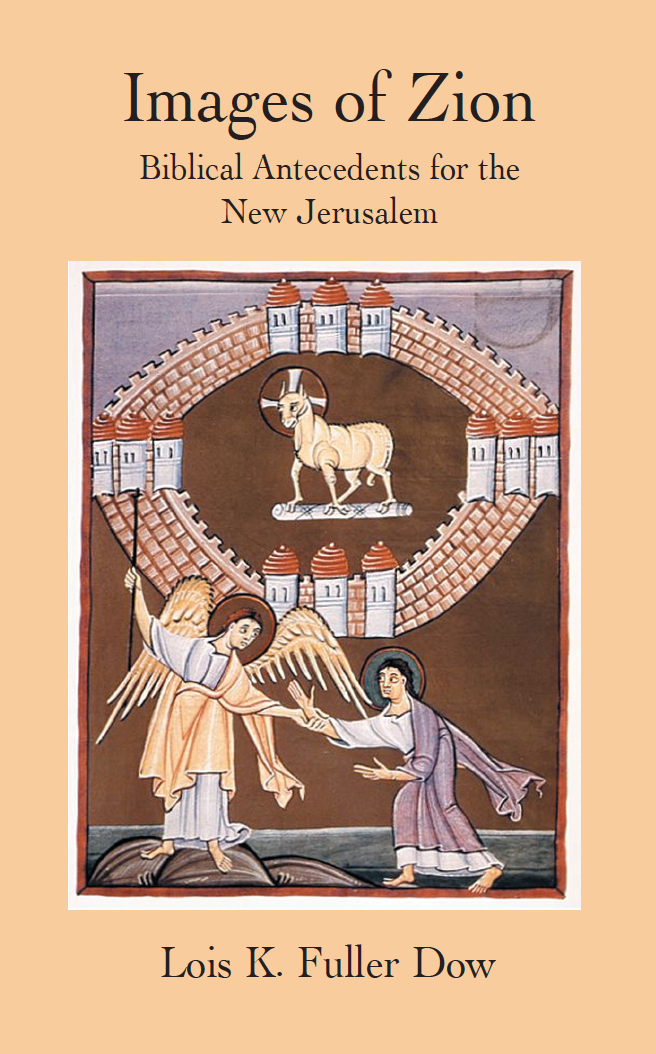
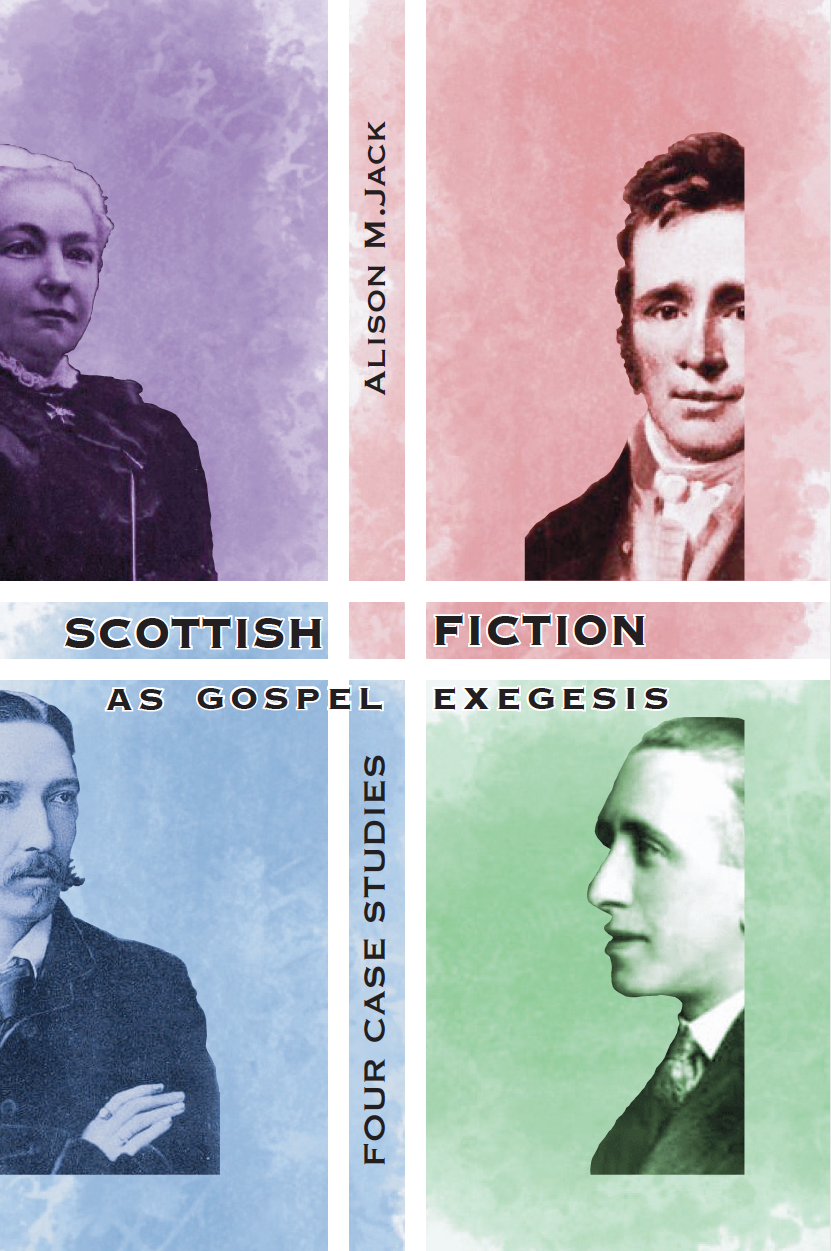
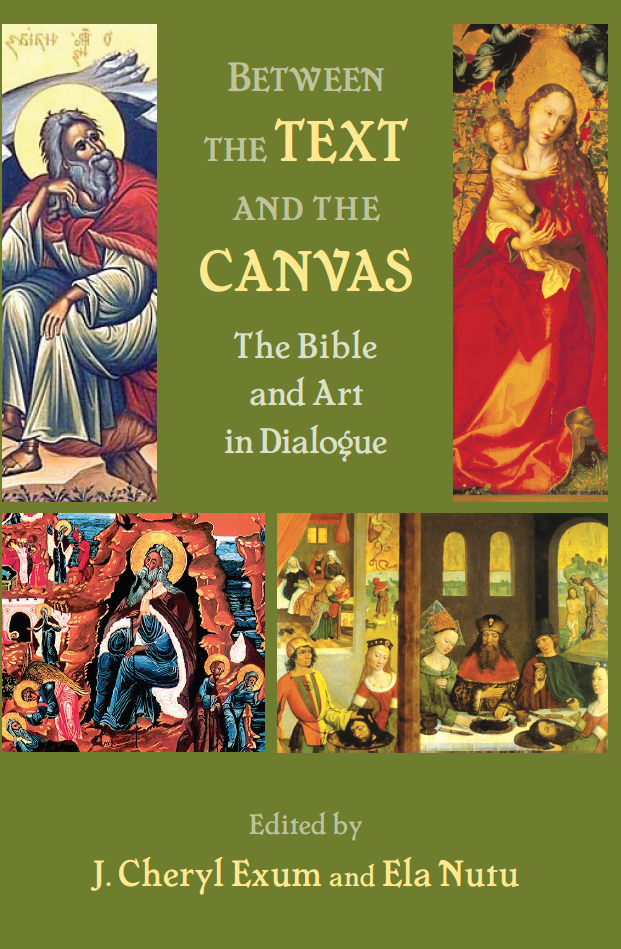
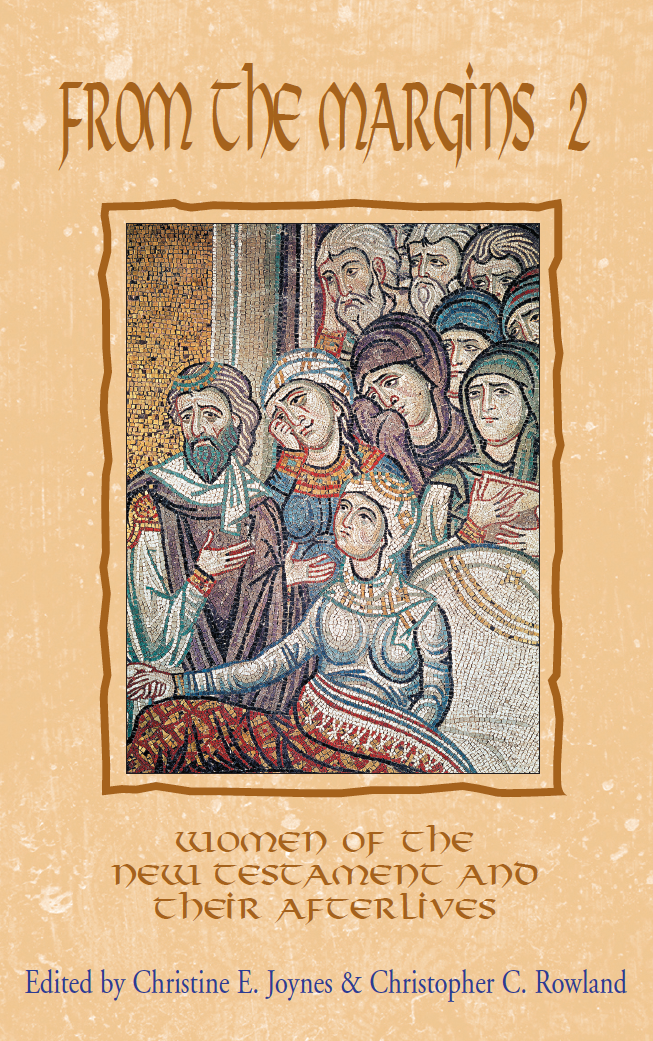
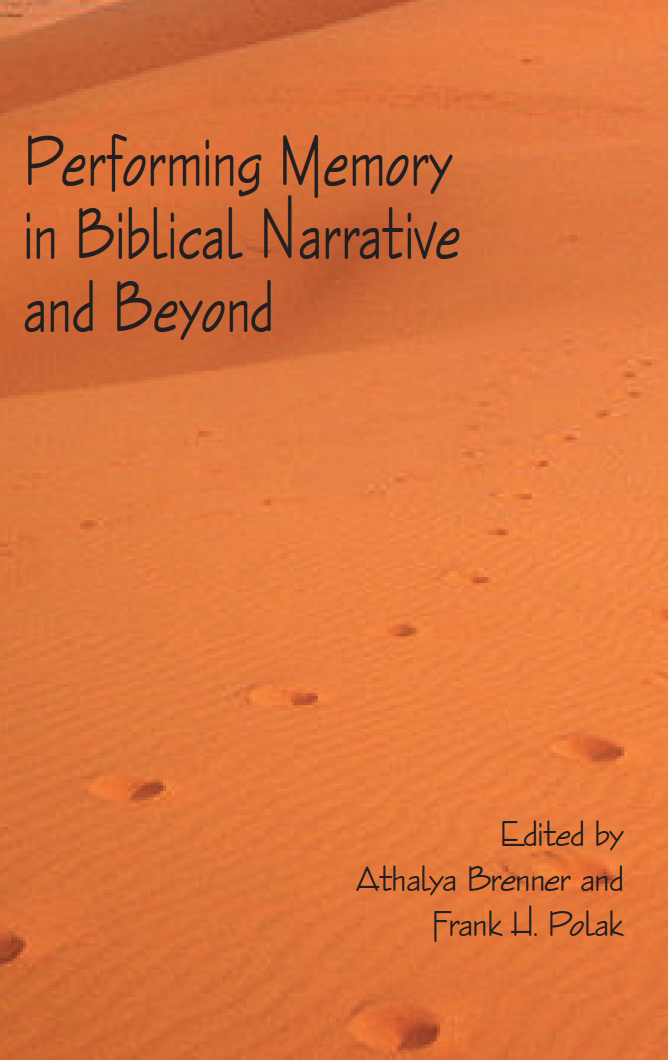


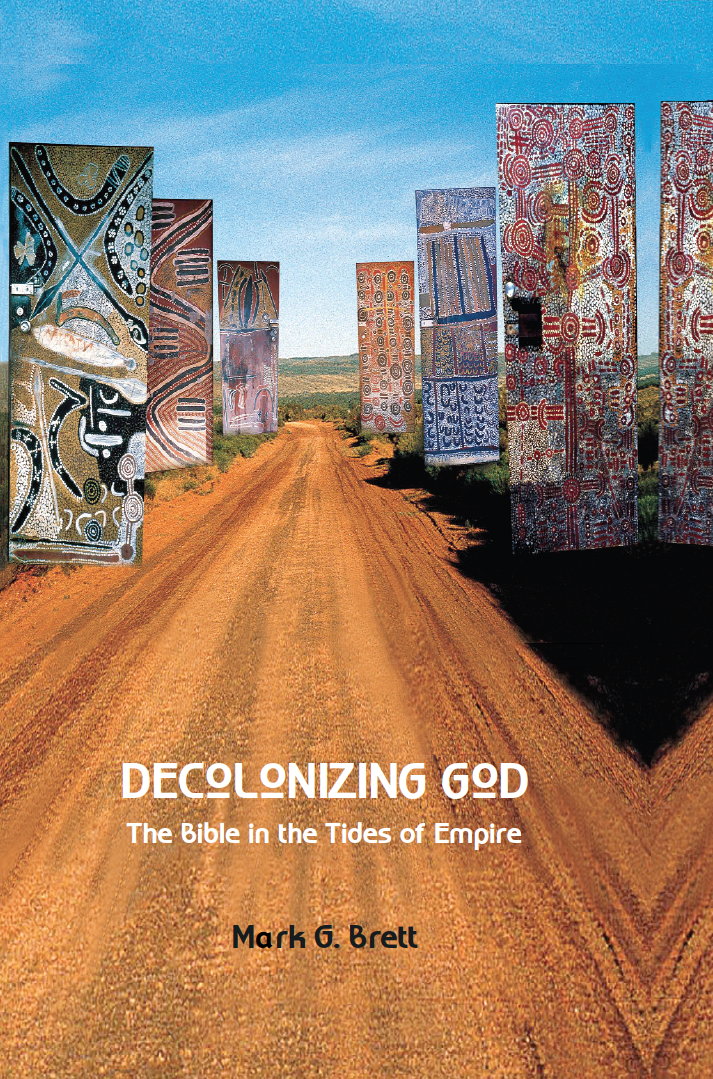

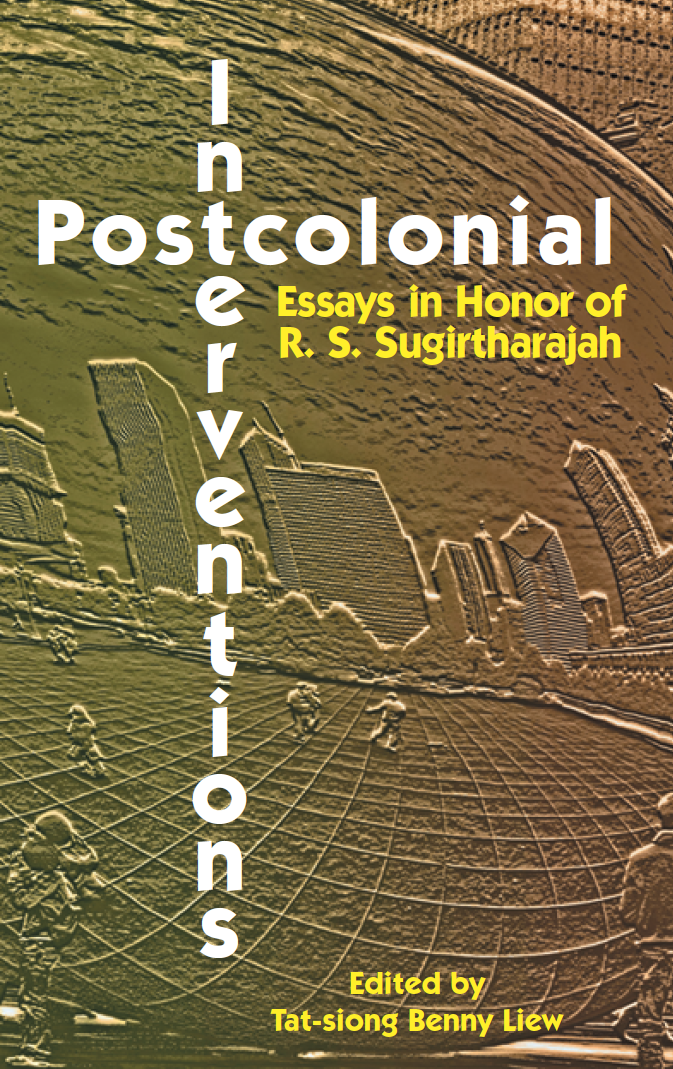

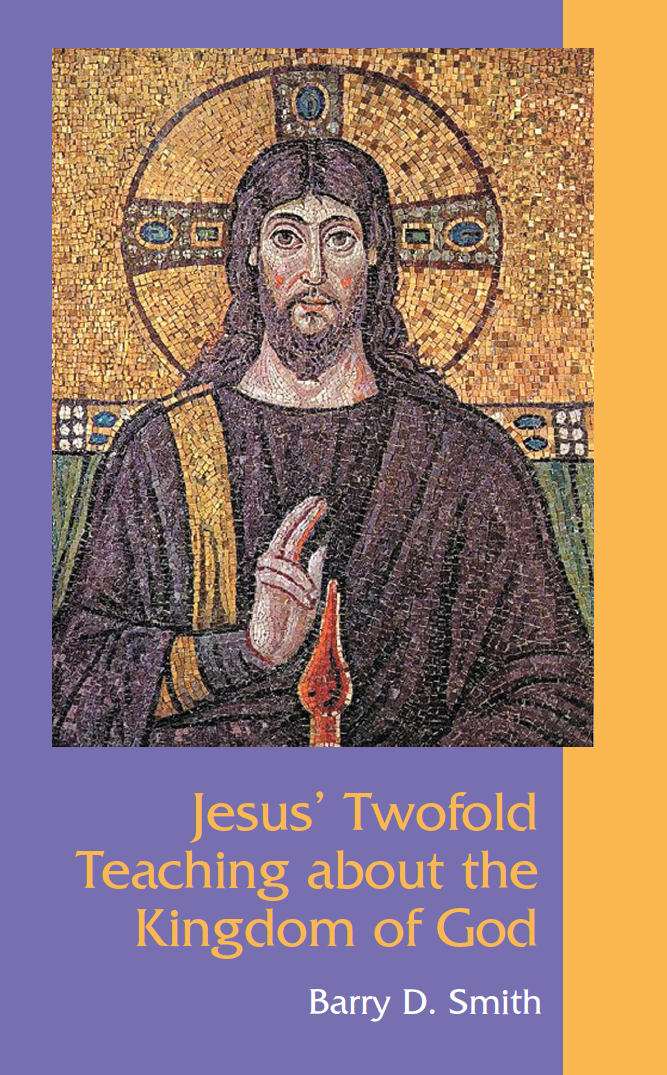
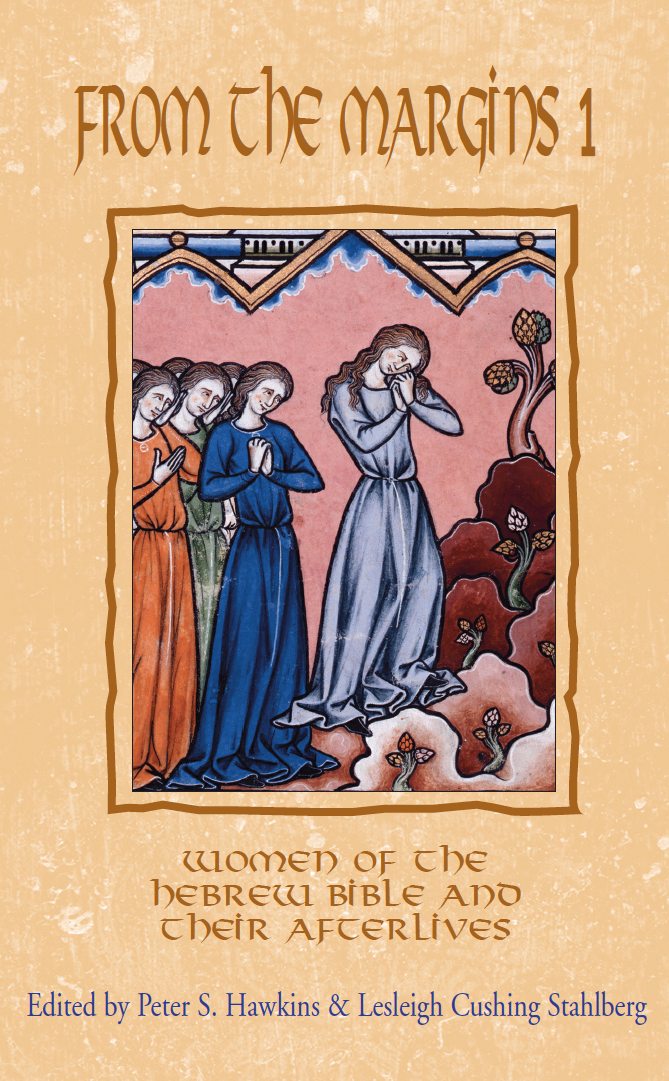

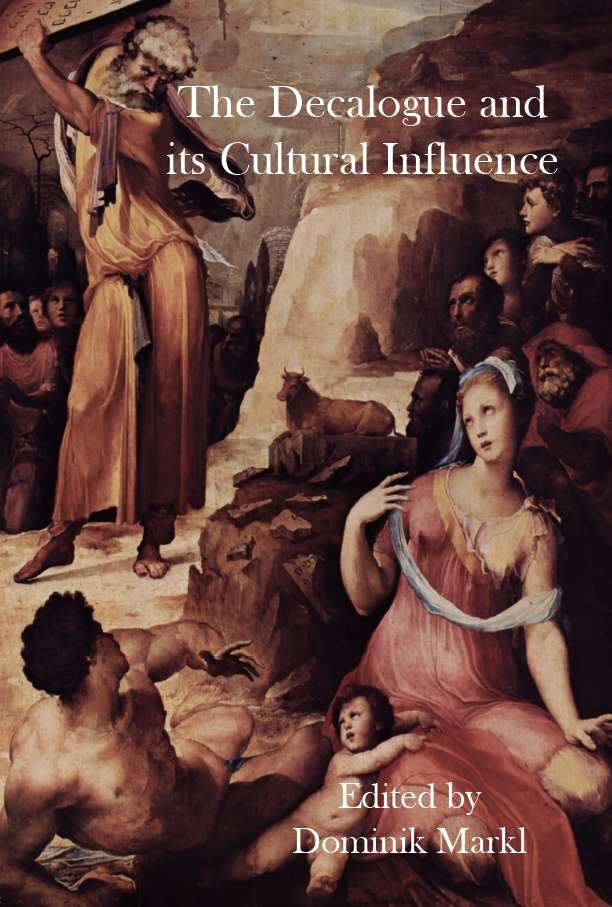


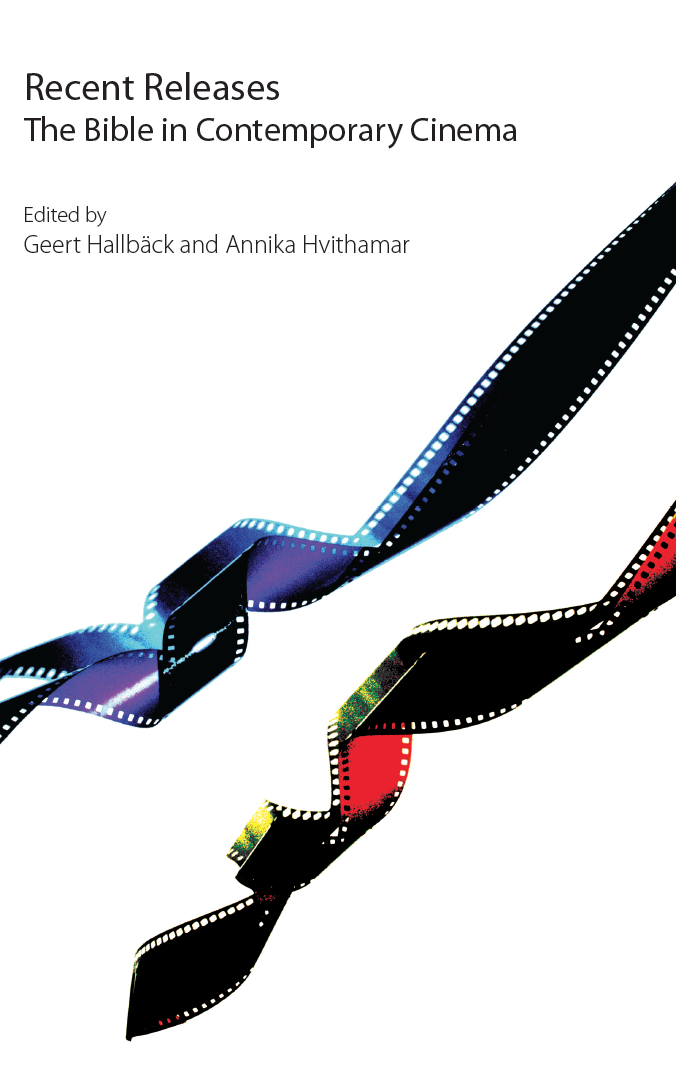
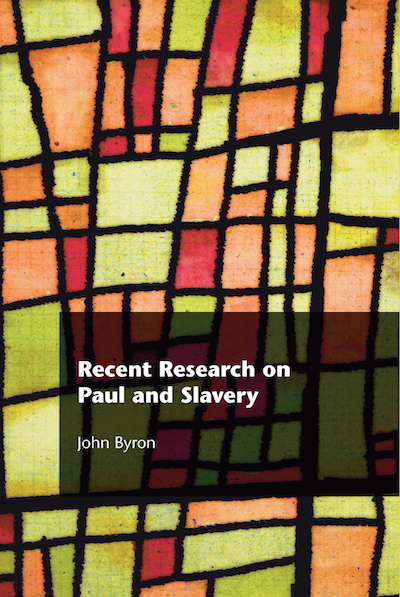
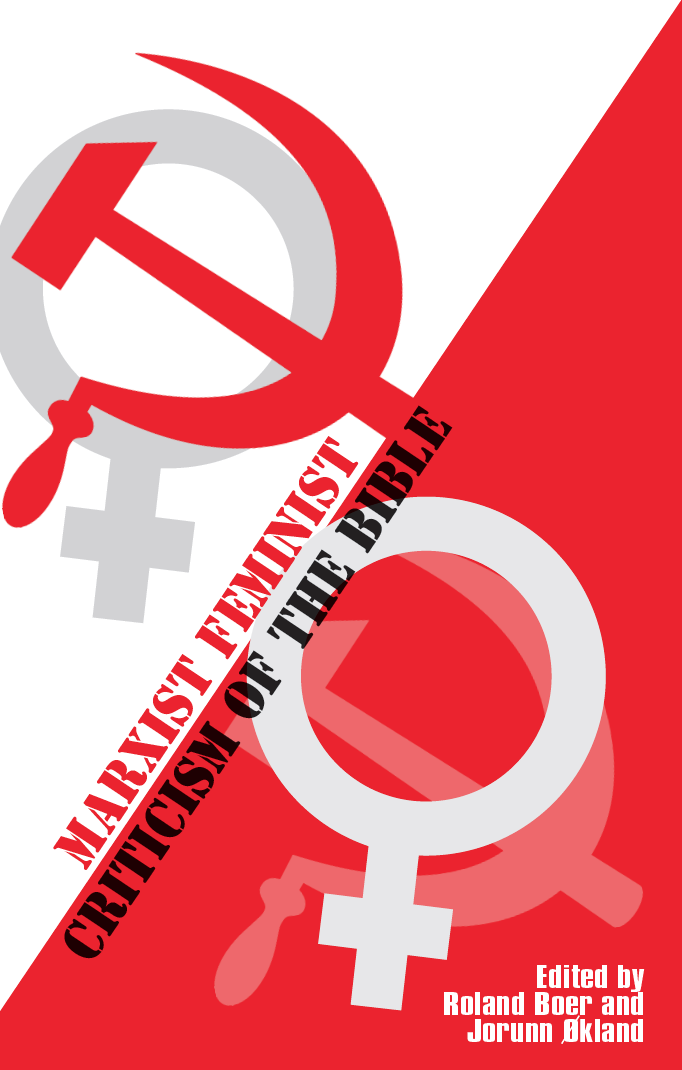
Matthew, Second Edition
Matthew, Second Edition